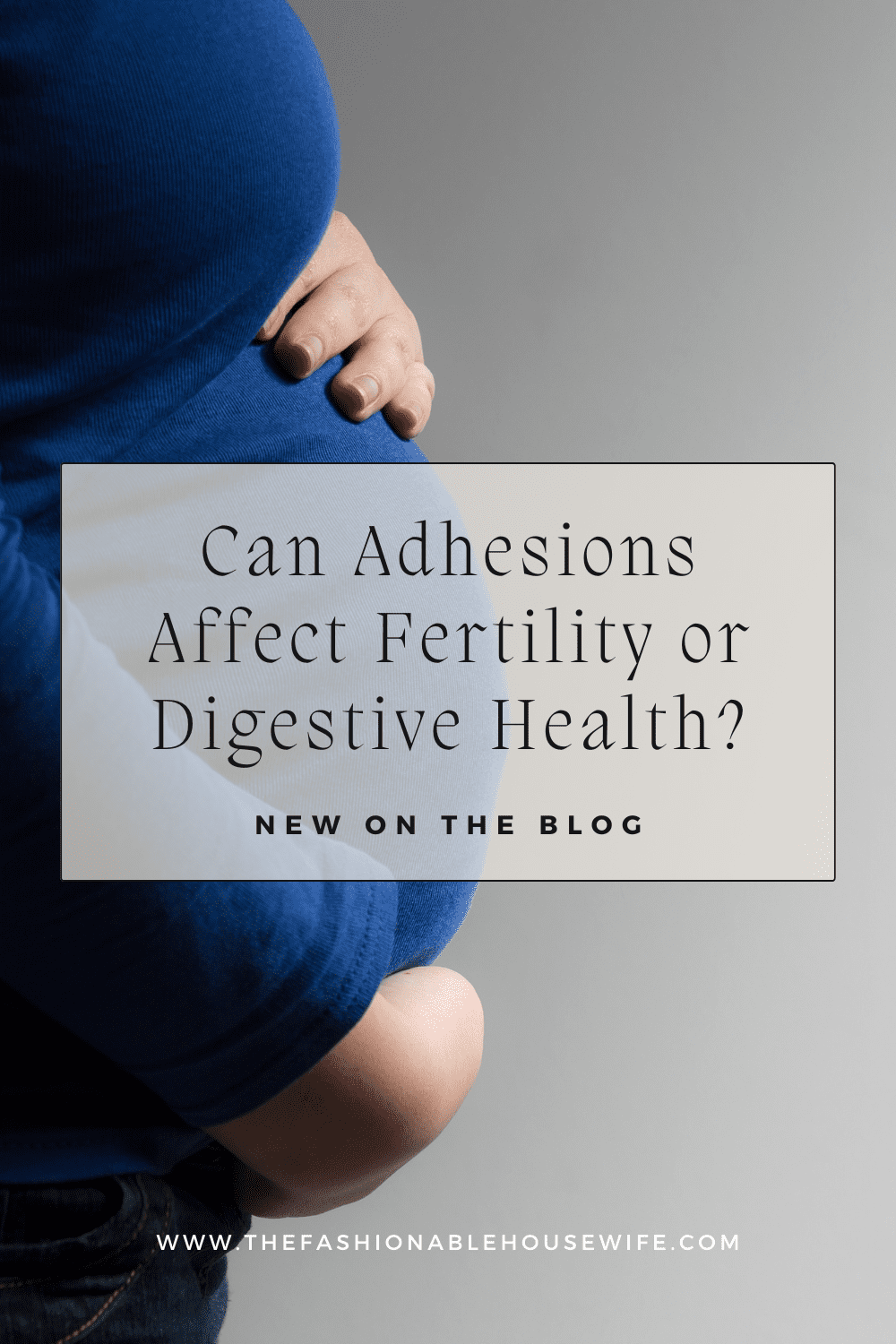Can Adhesions Affect Fertility or Digestive Health?

Scar tissues known as adhesions can develop within your body following surgery or any major gastrointestinal issues. Though you might not notice them right away, these adhesions can truly affect how your insides function especially with relation to digestion and fertility. When organs are pulled and bound together by adhesions, additional stress or even infections can result. This leads to an uneasy life and forces you to deal with many painful conditions. Getting to know how these hidden issues impact you each day could really help. This awareness also affects important choices about care or other possible fixes in the future. If you are wondering can adhesions affect fertility or digestive health, keep reading.
What Adhesions Are and How They Form
Your body may build scar tissue following surgery or a stomach problem. This tissue can connect or link organs in your belly, including those pertaining to reproduction or the intestines. These adhesions might not be detected at first. Still, in time they could cause issues. They develop as part of your body’s means to heal from injury or surgery. Sometimes, this healing process leads to tissue binding when it should not. This scarring inside your body could restrict the smooth operation of organs. It could result in unneeded pressure or pain over time.
How Adhesions Can Affect Fertility
If you are a woman, adhesions especially run a risk affecting your fertility. They can either restrict your fallopian tubes together or cause distortion of reproductive organs, requiring proper surgery. This could make conception difficult or cause other fertility problems. Even though many women with adhesions remain fertile, there is a risk that these hidden scar tissues could hamper your chances of conception. Getting the right help could be very important if you are trying to conceive. Knowing that adhesions can cause issues might assist you to keep an eye on your reproductive health better.
The Link between Adhesions and Digestive Issues
If adhesions begin to constrict your intestines, they may potentially cause digestive problems. This can make bowel motions quite difficult, which causes pain and makes you feel ill. You might also have stomach pains or find it difficult to pass feces. Your colon could also become seriously blocked, therefore your intestines may obstruct the usual flow of gas, fluids, or feces. This leads to pain and possible emergency medical help. Even though not all persons with adhesions will have digestive troubles, there is a chance that these hidden scar tissues could restrict how well your stomach and intestines work. Having knowledge about it might help you keep a check on your digestive health.

Adhesions Hinders Organ Movement
When adhesions develop, they can bind organs together which is not good. Your organs need complete freedom for smooth functioning. But these adhesions force organs to pull in various directions leading to much pain or even wrong organ location. In case of such organ distortion, the organs might not perform their tasks correctly which could result in problems. The most important thing is that these disturbances cause much intolerable pain and block your organs from functioning normally. Understanding how adhesions affect organ movement could help you to know more about body problems.
Symptoms of Adhesions You Shouldn’t Ignore
Adhesions can cause symptoms that should not be neglected at all. These could range from moderate to much intense abdominal pain. Other symptoms include bloating, changes in bowel pattern, and nausea. Should the digestive system be compromised, bowel blockages could also be evident. Such signs could point out that your organs are hindered or that there is much trouble inside. You must consult with a healthcare expert at the earliest if you experience these symptoms. They will carry out proper investigations to know the issue and provide much required help in order to avoid more issues.
Surgical Considerations and the Role of Hemostasis
Adhesions can sometimes be removed surgically, particularly if they are seriously interfering with your digestive system or pregnancy. Control of bleeding is absolutely crucial for the operation. This helps keep you safe and helps your body heal afterwards. Surgeons have lots of different ways to manage bleeding and lower the risks to your body, even borrowing methods from other kinds of surgeries. For example, techniques used to achieve hemostasis in cardiovascular surgery—which focus on controlling blood loss and maintaining stability—are sometimes adapted in abdominal or pelvic surgeries as well. And these improved methods can really help cut down on scarring inside your body and help you feel better after adhesion removal surgery. Also, an improved surgical environment reduces the chance that new adhesions will come back after surgery, helping you recover better.
So, Can Adhesions Affect Fertility?
To sum up, adhesions might not be seen but can lead to major troubles with digestion and fertility. They can cause your organs to be held together, and this can result in a lot of pain and a sense of unease. Make sure to consult a doctor if you have any signs. The right remedy could assist in providing much needed relief and support a better life free from discomfort.

